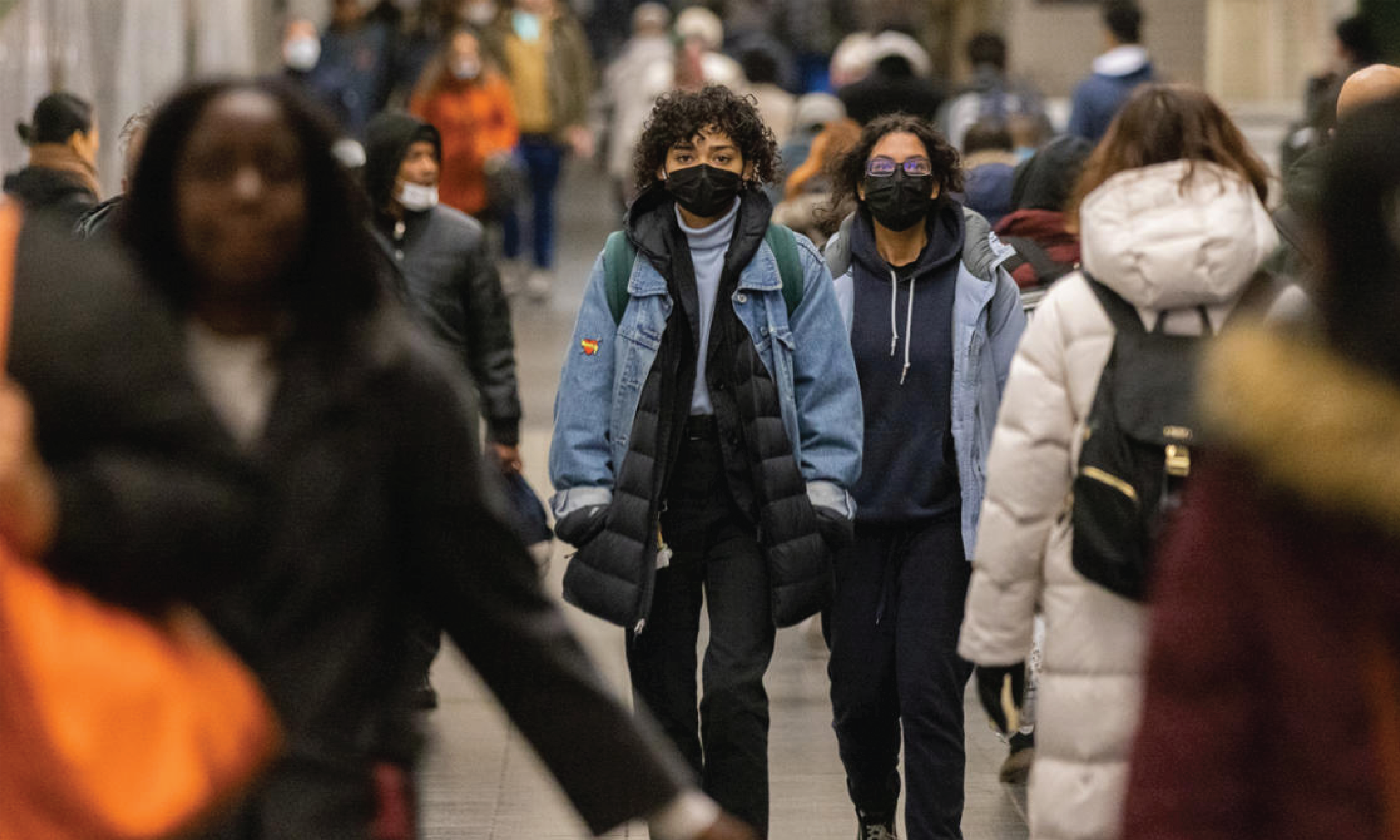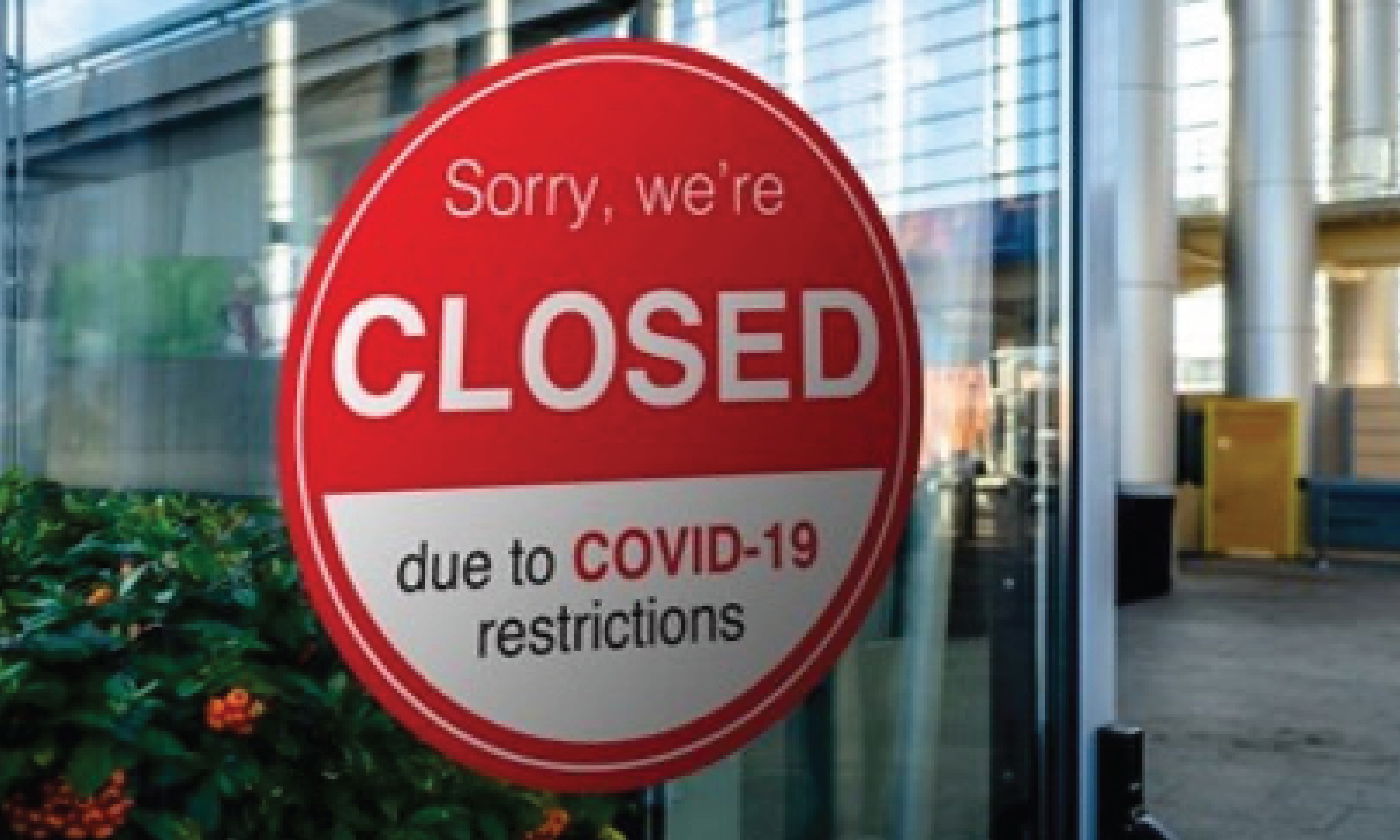In public servants’ response to the Chinese coronavirus, policies were enacted that ultimately hindered programs trying to address sex slavery in Texas. In some cases, Gov. Greg Abbott funded woke organizations with taxpayer monies in the name of fighting this immoral market.
Unfortunately, multiple taxpayer-funded projects failed to meet their goals. All the while, sex slavery is still plaguing Texas.
Otherwise known as sex trafficking, sex slavery “is the exploitation of persons through force, fraud, or coercion,” according to Jaco Booyens, a specialist whose sister was taken by this slave trade. Booyens later founded a ministry to actively fight sex trafficking.
Sex trafficking is a subset of human trafficking, which—according to the U.S. Department of Homeland Security—“involves the use of force, fraud, or coercion to obtain some type of labor or commercial sex act.”
Source Documents
Throughout the investigation, Texas Scorecard reviewed records (project measures and expenditures) obtained from the governor’s office pertaining to grants awarded to various anti-sex trafficking non-governmental organizations (NGOs) in the state. This article contains data pulled from nearly a dozen spreadsheets provided by the governor’s office detailing the progress of these grants. These spreadsheets are listed below:
- Advocacy Custom Performance Measures
- Advocacy Custom Performance Measures (Updated 12.8.20)
- Fiscal Year 2022 Advocacy Measures
- Fiscal Year 2023 Advocacy Measures-2
- Drop-in Measures (Updated-12.8.20)
- Drop In Measures Fiscal Year 2021
- FY 23 Drop-in Measures
- Fiscal Year 2022 Emergency Measures
- Long-term Residential Measures (Updated 12.8.20)
- Emergency Measures (Updated 12.8.20)
Texas Scorecard also relied on a number of public sources, such as a report published by the data arm of the National Human Trafficking Hotline.
This article contains highlights from these documents. Citizens wishing to conduct a deep dive should click the links above.
Fighting Sex Slavery, or Promoting Wokeism?

Woke ideology pushes culture off of a cliff.
Many organizations received state taxpayer funding in the fight against sex slavery in Texas. Most appear to do good work, but a number of them have questionable connections to woke leftist ideologies such as DEI (diversity, equity, and inclusion).
An organization called 3Strands was budgeted by the Office of the Governor (OOG) to receive more than $479,000 of taxpayer monies in 2020 and 2022. 3Strands is affiliated with PRIDE Industries, an organization that helps companies “attract social impact (ESG) investors” and “achieve [their] inclusion and diversity goals.” As previously reported, ESG stands for Environment, Social, and Governance and is the parent ideology of the destructive DEI.
Texas Scorecard previously launched an investigative series into these ideologies and their presence in Texas state and local government (Parts 1, 2, 3, 4).
Another organization, New Friends New Life, was budgeted to receive more than $1.6 million in grants from the OOG since 2018. As of the most recent report, NFNL has so far spent more than $1.4 million of those funds. On the organization’s board of directors is Christa Sanford, a partner at Baker Botts LLP who sits on the firm’s Diversity & Inclusion Committee. She also does work with Environmental, Social, and Governance (ESG). Texas Scorecard previously reported about Baker Botts’ lawyers being part of a legal coalition opposing efforts to protect children from gender mutilation.
The Lone Star Justice Alliance was also one of the NGOs supported by the governor’s office. For 2022, the governor’s office budgeted $112,000 in taxpayer monies to provide “pro bono legal services for child victims of human trafficking.” All of this appears to have been spent. However, their organization focuses heavily on “racial equity” and opposing “systemic racism.” On their website, they proclaim: “We speak hard truths, including that our criminal justice system has roots in racial oppression. Only through dismantling and rebuilding the system can we hope to bring about racial equity, increase public safety, and create opportunities for our entire community.”
Another prominent grant recipient is Love146. The governor’s office budgeted more than $631,000 in taxpayer monies from 2019 to 2021. All of this appears to have been spent.
Here again, taxpayer funds went to an organization with woke DEI ideologies. Love146 promotes its equity statement online and provides several additional resources addressing the “intersection of trafficking and DEI.” They emphasize the importance of “conducting anti-trafficking work using a racial equity lens.” This includes “dismantling the institutional racism that is endemic in our housing, banking, child care, education, child welfare, juvenile and criminal justice, policing, and public assistance systems.”
Some might ask, what does this have to do with fighting sex slavery? According to Love146, “The anti-trafficking field … needs to acknowledge and address the disproportionate representation of White individuals who sit in positions of authority, including on councils and committees convened to advise the government.”
Their wokeness doesn’t stop at divisive racial propaganda, but proceeds to pushing gender dysphoria. Love146 claims that “providers, messaging, and research often collects and presents information for a gender binary of ‘boys and girls,’ and services are often built around the needs of cisgendered white girls.” Their website links to other leftist organizations such as PFLAG, the Trevor Project, and the National Center for Transgender Equality.
Finally, another notable NGO that received taxpayer-funded grants from the governor’s office is United Against Human Trafficking (UAHT), which had $400,000 of taxpayer monies budgeted for them; of last report, they’ve spent more than $101,000 of that. They have an especially strong stance on DEI and wokeness. Their website boasts: “We train our staff on the historical context of racism and how to be an anti-racist, providing the space to have deep and honest times of reflection and learning within our organization and with all our partners.” Furthermore, they “provide diversity, equity, and inclusion trainings to our Houston Rescue and Restore Coalition partners and are dedicated to only partnering with organizations committed to this process [emphasis added].”
Apparently, being united in the fight against slavery isn’t enough.
Texas Scorecard contacted the above organizations for comment. Only Lone Star Justice Alliance replied, but they were unable to schedule a time for an interview due to an emergency.
Failing Victims
Previously, Texas Scorecard reported on the sex slavery blight that has plagued Texas for years. Public servants have poured millions of taxpayer dollars into the enforcement of criminal penalties and recovering victims. But what did these millions buy?
In numerous cases, these organizations fell behind on their goals or closed their doors altogether. In past years, the Chinese coronavirus has been cited as the reason why their progress was stunted. However, more often than not, it wasn’t the coronavirus itself that impacted these organizations and their services; rather, it was the drastic, draconian steps taken by state and local public servants in the name of “public health” that physically closed their doors. Ultimately, it wasn’t these organizations themselves that suffered, but rather the victims who could not be served properly.
Arguments against the standard government response to the virus are well documented. On October 4, 2020, a significant number of medical specialists signed The Great Barrington Declaration, cautioning against government-ordered mandates, restrictions, and shutdowns in response to the Chinese coronavirus. Since then, several scientific specialists and studies have documented the foolishness and ineffectiveness of the government response to the virus, arguing they did little to fight the virus’ spread. Some reports claim it actually prolonged the virus, delaying the development of herd immunity.
This would not be the first time elected public servants’ “cures” worse than the actual disease. Widely reported analysis of former President Franklin D. Roosevelt’s (D) response to the Great Depression found his New Deal programs worsened and prolonged the widespread financial suffering. This is documented in works such as economist Amity Schlaes’ “The Forgotten Man,” and journalist John T. Flynn’s “The Roosevelt Myth.”
This pattern by federal, state, and local officials continued in 2020, and Texas’ public servants followed rather than led. The consequences were far more than economic.

In response to the Chinese coronavirus, many state and local officials nationwide issued multiple liberty-violating mandates.
The Polaris Project, the data arm of the National Human Trafficking Hotline, published a national report where they compared the number of crisis trafficking situations reported in February and March of 2019 and 2020, before local government lockdowns were instituted, to the number reported in April of 2020 after those orders were issued.
The report found that “the number of crisis trafficking situations increased by more than 40 percent [emphasis original].” Further, “the number of situations in which people needed immediate emergency shelter nearly doubled (from around 29 in pre-shelter-in-place periods to 54 in April 2020) [emphasis original].” This report also interviewed service providers who assist victims of human trafficking. “Of the 80 providers who responded before [the] beginning of April, 50 percent were either considering or already implementing measures that would limit receiving referrals, and another four percent had already stopped accepting any new referrals [emphasis original].”
While public servants shut down legitimate businesses across the country and state, the sex slave trade stayed open. As this evidence indicates, victims were still being trafficked, but now they had fewer places to go for help. It’s possible that some of these organizations may have closed their doors of their own volition or out of fear for the virus. However, records indicate that some did so because they simply had no other choice.
In the progress reports provided to Texas Scorecard by the governor’s office—specifically pertaining to grants issued by the Child Sex Trafficking Team (CSTT)—a number of NGOs who failed to meet their target goals because state public servants shut them down.
A non-governmental organization (NGO) called Unbound Global has a network of organizations around the world that fight human trafficking. They focus on education, training, and working with survivors and victims of trafficking. They received more than $61,000 in funding to launch a new advocacy program, attend trainings, and work with other government agencies and anti-trafficking private organizations. In the fourth quarter of Fiscal Year 2022, they reported that “COVID restrictions have been a barrier to identifying youth detained in the McLennan County Juvenile Detention Center and facilitating prevention groups there for most of the fiscal year.” In this case, this impacted the services offered to victims as well as the investigation of crimes, as “law enforcement decreased the amount of sting operations conducted in [the] area as well, which was also another significant source of referrals for our agency.”
One example is an organization called For the Silent. Their advocacy program works with victims of sexual exploitation. They received more than $81,000 from the governor’s office to work with survivor clients in 2020. In their report, they noted that “the shutdowns and restrictions have impacted most of our usual processes and business operations. … In addition, we were unable to visit the juvenile detention facility due to a lock down resulting from COVID-19. These challenges may ultimately impact our ability to meet all of our goals.”
For The Silent did not provide a comment to Texas Scorecard.
Many organizations faced staffing issues, as well.
Central Texas Youth Services (CTYS) is an organization that assists “troubled children, youth, and families toward development of their full potential through provision of quality community-based services.” Kami Diaz of CTYS told Texas Scorecard that most of the youth they serve are either homeless or “at high risk” of being so. Records from Office of the Governor report CTYS received more than $231,000 to provide counseling and case management at their drop-in center for CSEY (commercially sexually exploited youth). In the third quarter of Fiscal Year 2020, they reported that their “plans to allocate funds to hire a new staff person and expand drop in center hours of operations have been put on hold due to Covid-19 closures and mandatory shelter in place order.” Ultimately, they were “unable to … expend all allocated funds as a result of [C]ovid-19 restrictions which impacted provision of services and expansion plan of hiring a new staff person.”
Diaz replied to Texas Scorecard’s request for comment. “COVID-19 closures had a great impact on programing [sic] in 2020,” she said. “During this time, shelters were frequently locked down due to exposure, and limited availability. Our drop-in facility frequently had to close, due to exposure and sheltering in place.”
She added that during this time period, they “delivered emergency and hygiene supplies to youth” at certain pick-up locations. Office closures and staff turnover at Central Texas Youth Services “drastically reduced” or capped community resources. “All of this resulted in a reduction of referrals and youth accessing our facility, which reduced interaction with youth to identify trafficked or potentially trafficked youth,” Diaz explained. “In the aftermath of COVID-19, many organizations experienced staff turnover, and this resulted in a reduced awareness of the program. Reduced youth engagement also resulted in reduced awareness of the program due to peer-to-peer referrals being a huge part of youth engagement.”
Hope Rising reported similar struggles in the fourth quarter of Fiscal Year 2020, specifically “readjusting to state requirements” in response to the Chinese coronavirus. By the third quarter of Fiscal Year 2022, the grant was closed and the remaining funds were “deobligated.”
Our investigation revealed more staffing issues.
Centro Seguro is a center run by Roy Maas Youth Alternatives, which provides services for youth under the age of 18. They received more $965,000 in funding to continue operating the center and started a mobile center to help youth in crisis. In the third quarter of Fiscal Year 2021, they reported that “staffing issues continue to be the largest obstacles as COVID-19 fears have caused staff turnover.” They specified that “extended government unemployment and salary competition has added to the issue in finding competent staff.” Throughout the coronavirus situation, governments amplified fear of the virus while unleashing untold sums of taxpayer-backed deficit spending that has contributed to the current national inflation.
Then there’s Heart of Texas MHMR, which provides services to individuals in crisis, particularly involving mental illness and related conflicts. They received $129,000 to operate one of their shelter programs and provide support to victims of trafficking. In the first quarter of Fiscal Year 2022, they reported, “There are many reasons for the obstacle related to hiring our Hope Shelter Case Manager; namely, the sociological stressors related to the Pandemic Crisis, together with the effect of the so-called ‘Great recession.’” In the fourth quarter of that same fiscal year, they reported that their difficulty in filling that position “provided a delay” in their outreach efforts, but they had started “intensely expanding” their outreach since filling the position.
The organization responded to Texas Scorecard’s request for comment but did not provide an answer to our questions before publication.
All other organizations listed in this section did not respond to a request for comment before publication.
Falling Behind

Texas Scorecard received spreadsheets documenting the amounts of grants from the OOG, target goals, and performance metrics for the lifetime of the grant.
While grants failed due to the public servants’ overreaching and medically unsound coronavirus policies, some met their doom for other reasons. Four grants awarded to various NGOs in 2020-2023 ultimately fell short of their targets, at least in part because public servants fell behind schedule.
A Fiscal Year 2023 report stated SAFE Alliance had a project in the works to renew a drop-in program for victims, but the project was delayed because “OOG notified SAFE about the funding award after the start date.” Likewise, a report that same Fiscal Year stated Unbound Austin did not report any activity in the first quarter towards accomplishing their client advocacy goals because there was a delay in the grant award. For the first quarter of Fiscal Year 2020, The Landing was planning to launch advocacy programs, but “due to a late award notice [the] program launch date was delayed.” In the second quarter of Fiscal Year 2020, Jonathan’s Place, an organization with the goal of placing victims in foster homes, reported they were “not on track to spend the full amount due to late notification of the grant award which did not allow [them] to begin recruitment” in a timely manner.
For these organizations, their delay was no fault of their own, but rather simply because the governor’s office dropped the ball. None of the above organizations in this section replied to Texas Scorecard’s request for comment before publication.
Multiple programs fell behind their goals for reasons that do not appear to be connected to government mandates or restrictions in response to the coronavirus.
The city of Houston was one of the recipients of these grants. The Houston Metro Internet Crimes Against Children Task Force received a total of three grants (amounting to more than $660,000, more than $505,000, and more than $548,000, respectively) to initiate investigations and make arrests, identify victims, and provide training to law enforcement. While in multiple reporting periods they did surpass expectations in areas such as number of cyber tips received and presentations to citizens and law enforcement, this funding produced a mixed bag of results. In their last report (March and September of 2022), they failed to meet their target goals for the number of investigations (including those resulting in arrest), victim identifications, and certain trainings.
Most of the funding from the governor’s office went to non-governmental organizations (NGOs). The results here are likewise spotty. Although some areas showed success and improvement, multiple recipients reported failures to meet their target goals. One organization mentioned earlier, Love 146, received three grants totaling more than $630,000 altogether. Despite this funding, they fell substantially below the target level in nearly all categories, including children receiving prevention education and receiving instruction/support.
Another NGO, Allies Against Slavery, since 2020 received more than $731,000 for a new data-gathering project called Lighthouse. As of the last report, it appears the project’s performance, based on metrics from the governor’s office, is spotty. The data appears to show that from March 2021 to September 2022, they would briefly over-perform on some of their goals, only to fall later. They consistently underperformed on the rest. They have spent more than $37,000 of the $225,000 budgeted for them by the governor’s office in 2023.
Arrow and Child Family Ministries received $250,000 for various victim services. Overall, they showed results above target level for new victims served under age 18, new female victims served, and new victims receiving services from the agency for the first time. But on the reporting date of September 15, 2022, they fell below the target level for new male victims served, new victims served 25 and older (for the second reporting period in a row), and new victims served between the ages of 18-24.
An organization called Collective Liberty was awarded more than $200,000 by Gov. Abbott in 2020. Metrics from the governor’s office show that from March 2020 to March 2021, the number of non-criminal justice professionals trained all fell below their target level. The number of criminal justice professionals trained exceeded the target level for only one reporting period, and was below the rest. The number of trafficking cases filed and trafficking cases referred for prosecution were above the target level in the first reporting period only, and below in the other two. The number of training events provided in the second reporting period exceeded the target, but were below in the other two.
Starting from 2019, Children at Risk received four grants from the governor’s office for their Cities Empowered Against Sexual Exploitation (CEASE) project, amounting to more than $661,000. These grants funded CEASE to counter demand for paying for sex. According to Gov. Abbott’s own metrics, all CEASE grant activities were below target levels.
Unanswered Questions
While some of the NGOs discussed in this article merely fell short of their target levels of activity, others closed their doors altogether. BCFS Common Ground, a project of BCFS Health and Human Services, was working to serve survivors of human trafficking at their site. However, after receiving more than $3 million in grant monies from the Office of the Governor, they ultimately ended their project in the second quarter of Fiscal Year 2020. What happened to the money is unclear. In the first quarter of Fiscal Year 2020, they reported that their Common Ground project “served 5 survivors.” The report continues that “during this reporting period, it continues to be difficult to recruit and hire licensed clinicians[,] therefore those funds have not been spent.”
More than $720,000 was given to Texas Family Initiative for assistance with a facility called Nicole’s House, but construction delays made the start of the project unfeasible, so the grant was “deobligated” and the project shut down. It appears that none of the money was spent.

Another organization, Hope Rising, “provide[s] long-term care and recovery for minor children who have been rescued from human sex trafficking and exploitation” through case management and counseling. They received more than $446,000, but eventually closed their grant and “deobligated remaining funds” in the third quarter of Fiscal Year 2022. The amount of the grant that had already been spent was not disclosed.
Texas Scorecard contacted a member of the governor’s fiscal policy team for clarification regarding these “deobligation” procedures and where the grant money went. No response was received prior to publication.
We also sent questions to each of the organizations listed above. Only the Lone Star Justice Alliance replied in an attempt to set up an interview, but they experienced an emergency that prevented an interview from being conducted before publication.
Conclusion
The Office of Governor Abbott did not respond to our request for comment for this article.
The first article of this series recalled the story of public servants not enforcing state law and allowing the well-known “Chicken Ranch” brothel to operate for many years.
The moral of this particular story is that when it comes to fighting sex slavery, state and local public servants have hampered the charge, either through misguided mandates, dropping the ball, funding woke organizations, or funding projects that didn’t meet goals. As economist Milton Friedman warned, “One of the great mistakes is to judge policies and programs by their intentions rather than their results.”
In Part 3, Texas Scorecard will examine where the state is today after public servants’ various actions in response to the sex slavery crisis.





